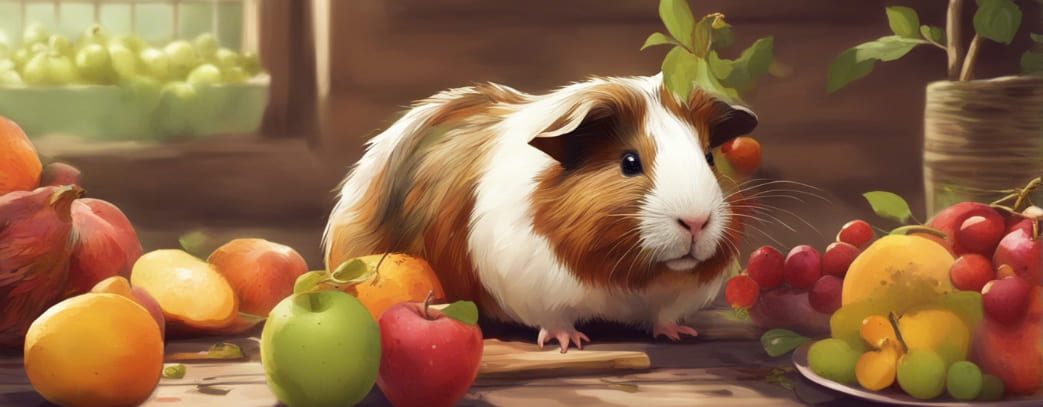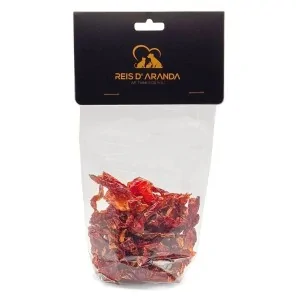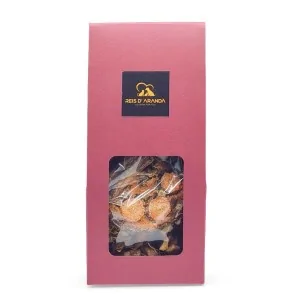The Tornjak originated from genetically homogeneous, almost extinct, indigenous shepherd dogs. These dogs have...
The Importance of Vitamin C in a Guinea Pig's Diet
What is a guinea pig?
Guinea pigs (also known as "guinea pigs", "guinea pigs" or "guinea pigs") are herbivorous animals weighing between 600 gr and 1,200kg. They belong to the rodent family and are characterized by their gentle look, great variety of colors and types of fur, wonderful pet character and vocal nature (they make many different sounds). Native to South America, they were originally used as food (a practice that continues in some countries in the Americas).
These creatures are often one of the first choices as pets for families with children who want a friendly and "easy" animal to care for, but guinea pigs hold many mysteries when it comes to their care and some of them are paramount to their survival and well-being, as is the case with vitamin C.
Vitamin C in a Guinea Pig's Diet
Guinea pigs are unique among mammals in that they cannot synthesize vitamin C in their bodies. Therefore, they are completely dependent on their diet for this essential vitamin. Vitamin C deficiency can have serious consequences for their health.
A lack or shortage of this vitamin in guinea pig diets results in a disease called "scurvy" (the same disease suffered by sailors in ancient times during long voyages).
Sources of Vitamin C for Guinea Pigs

Providing guinea pigs with a diet rich in vitamin C is essential. Recommended sources include fresh fruits such as kiwi (it is a bit acidic, so should be given in moderation), strawberries and oranges, as well as vegetables such as peppers (favorites, any color and never hot varieties) and spinach (also rich in calcium, so should be offered in moderation). One of the best sources of vitamin C is undoubtedly the rose hip, name given to the fruit of the wild rose bush; this fruit is sold in specialized pet stores in dehydrated form, being very tasty and aromatic.
The importance of prevention
Prevention is key to keeping your guinea pig healthy. Maintaining a balanced diet is essential to prevent vitamin C deficiency.
How can we know if our guinea pig is vitamin C deficient?
It is essential to watch for signs of vitamin C deficiency in guinea pigs. Common symptoms include lethargy, loss of appetite, joint inflammation, generalized scaling, pododermatitis, hyperkeratosis and dental problems. If you observe any of these signs, it is important to consult an exotic animal veterinarian immediately.
Balanced diet for guinea pigs
A balanced diet for guinea pigs should include a variety of foods rich in vitamin C, but also other essential nutrients such as fiber and protein. Some foods should be avoided or given in moderation, such as foods high in sugar or starch.
How can a diet rich in vitamin C benefit your guinea pig?
A diet rich in vitamin C has a significant impact on your guinea pig's overall health. It helps strengthen their immune system, prevent disease and maintain a healthy skin and coat. In addition, vitamin C is essential for the development and maintenance of your guinea pig's bones and teeth.
Final tips for keeping a healthy guinea pig
Keeping a guinea pig healthy goes beyond diet. It is important to provide fresh, clean water at all times, mental stimulation through toys and activities, and making sure they have enough space to move around and exercise. Another important point is to keep the habitat where they live clean, in order to avoid various skin problems (pododermatitis due to humidity), the appearance of fungi, parasites and bad odors.
Conclusion
Vitamin C plays a vital role in the health of a guinea pig. Ensuring that your pet receives enough vitamin C through a balanced diet is essential to prevent health problems and keep them happy and active. Remember that guinea pigs are special creatures that deserve special care.
Frequently Asked Questions
Can I give my guinea pig vitamin C supplements?
- It is preferable to obtain vitamin C from natural sources in their diet, but consult a veterinarian before administering commercial supplements.
What is the recommended daily amount of vitamin C for a guinea pig?
- An adult guinea pig generally needs at least 20-30 mg of vitamin C per day.
Are canned foods suitable for guinea pigs?
- Canned foods are not recommended as they often lack the necessary vitamin C, are often high in sugars and have preservatives or additives that can be harmful.
Can I feed my guinea pig citrus fruits such as lemons or limes?
- No , these citrus fruits are too acidic and can cause stomach problems in guinea pigs. Some recommended citrus fruits are orange (in small amounts) and tangerine, but we have safer and more palatable fruit options for them, such as peppers (any color).
When should I schedule a vet visit for my guinea pig?
- If you notice signs of vitamin C deficiency or any other health problems, you should schedule a visit to your exotic animal veterinarian immediately. The frequency of veterinary visits is normally every 6 months (three in the case of elderly animals over 4 years of age).
Leave a comment
Log in to post comments
















